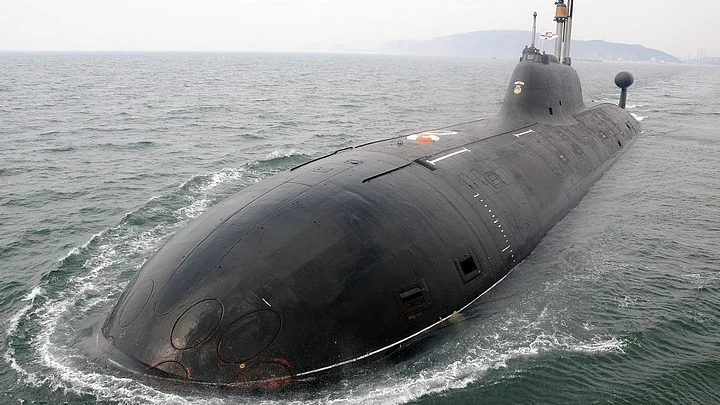India is close to leasing another Akula-1 class nuclear submarine from Russia to replace the INS Chakra at the end of its ten-year lease.
A naval delegation returned from Russia after inspecting two Akula-1 SNNs, the Bratsk and the Samara. The delegation was led by Inspector General (Nuclear Safety) Vice Admiral Soonil V Bhokare, reported India Today.
Joint Secretary (Finance) was also included in the MoD discussing the lease of one of the submarines which reportedly is for USD 3.3 billion (Rs 23,000 crore).
Admiral Lanba also visited Russia for four days after the naval delegation where he reportedly discussed construction of conventional submarines in India and Chakra’s lease, reported India Today.
According to a report by India Today, India is believed to have agreed to the deal. After S-400 air defense missile system deal worth USD 5,4 billion (Rs 40,000 crore) and two Admiral Grigorovich class frigates from Russia, this could be the next big deal between the two countries.
In 2011, the Akula-2 class nuclear submarine,the INS Chakra was taken on lease from Russia for USD 2.5 billion.
The cost of replacing the lease has been worked out considering the cost escalation using 2011 lease as base price, reported India Today quoting officials.
Shipped in 2014 from a Russian naval base in Kamchatka to Severodvinsk, the Bratsk is 28 years old, whereas the Samara is 23 years old. The Navy will be selecting one of them to lease.
Once the Inter Governmental Agreement (IGA) is signed between India and Russia, the submarine will be put through a 72-month deep refit and rebuild, where the nuclear reactor will be replaced and a number of indigenous systems will be installed on board.
SSNs can be used for hunting enemy submarines, escorting SSBNs and aircraft carriers and stalking and chasing enemy aircraft carriers.
Currently, all the Indian Navy’s tasks are performed by INS Chakra, its single platform and its lease expires in January 2022.
(With inputs from India Today)
(At The Quint, we question everything. Play an active role in shaping our journalism by becoming a member today.)
